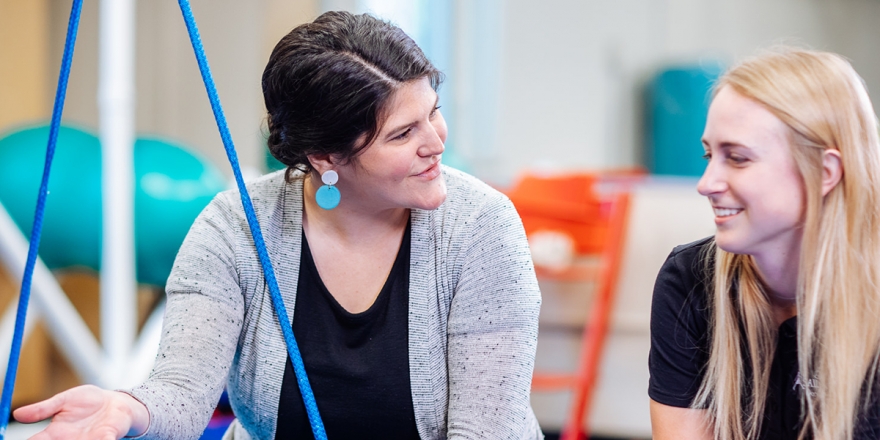
Caregivers share stories with CSM occupational therapy students
- New Horizons Newspaper (Omaha) -
After listening to two recent panel discussions, occupational therapy (OT) students at the College of Saint Mary now have a better insight into what it's like to care for a loved one who has dementia.
The panel that visited two of Ellie Cusic's classes at CSM featured Sheila Turbes, Jo Schafer, Diana Bodnar, and Mike Osberg.
Sheila's mother-who had Alzheimer's disease – died in 2019 after living with the Turbes family for four years. Jo's husband, age 75, has battled a cognitive impairment for seven years, while Diana's 82-year-old husband was diagnosed with vascular dementia two years ago. Osberg is the coordinator of the Eastern Nebraska Office on Aging's Caregiver Support Program.
The Caregiver Support Program offers specialized care management services that assist caregivers age 18 and older caring for a frail loved one age 60 and older or a person of any age who has dementia.
"Our program's main emphasis is to provide respite services for the caregiver," Osberg said.
These respite services are designed to reduce a caregiver's stress while allowing them to keep their loved one living at home.
The assistance may include up to six hours a week of respite care at home or days at an adult day services facility.
There are many challenges to caring for a loved one with dementia, according to the panelists.

“The hardest part was the loss of my spouse, my life partner, my sounding board," Schafer said.
"While the isolation is difficult, I took him for better or worse," Bodnar added.
While challenging, being a caregiver can' also be rewarding.
"It gave me a chance to give back to her,''Turbes said. “I know we kept my mom living in the best situation possible."
"My faith has deepened, and my personal growth can't be measured," Schafer said.
Bodnar said caring for her husband has brought her family closer together.
The panelists are thankful for the community resources and professionals available to them.
"I highly recommend ENOA and have referred friends to it wholeheartedly," Turbes said.
"The pain is eased the more you know (about dementia)," Schafer said.
Bodnar praised the occupational therapists, physical therapists, and speech therapists who have worked with her husband.
"If it wasn’t for them, he'd be in a wheelchair," she told the students. "Your role is just huge."
At the end of the first panel discussion, Osberg stood up from his chair, faced the caregivers, and ended the session with a simple statement to the students.
"These are the [caregiving] experts. They're living it."











